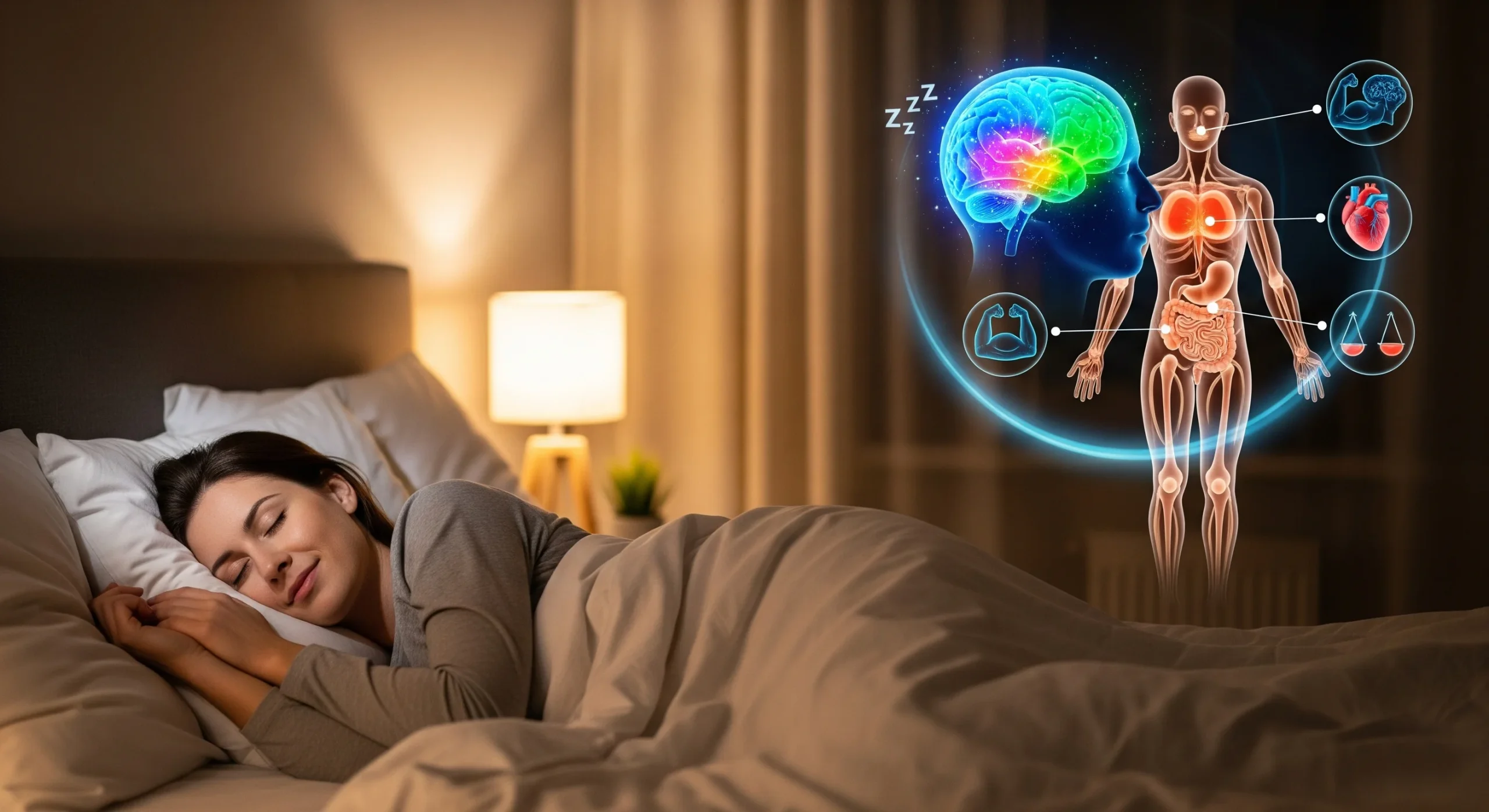😴 The Benefits of Getting Enough Sleep for Mental and Physical Health

Sleep is not just a time for rest, but an essential part of the body’s healing and regeneration process. Unfortunately, many people underestimate the importance of getting enough sleep, even though poor sleep quality can directly impact both physical and mental health.
This article will explore the benefits of sufficient sleep, the risks of sleep deprivation, and how to build a healthy sleep pattern.
🧠 The Connection Between Sleep and Mental Health
Sleep and mental health have a two-way relationship. Lack of sleep can cause stress, anxiety, and even depression. Conversely, mental disorders can also lead to insomnia or other sleep disturbances.
Mental Health Benefits of Getting Enough Sleep:
- Improves Mood and Emotional Resilience – People who get enough sleep are emotionally more stable, less irritable, and more patient.
- Reduces Risk of Depression and Anxiety – Sufficient sleep regulates serotonin and cortisol, two hormones that strongly influence mood.
- Enhances Memory and Focus – Memory consolidation happens during sleep, allowing the brain to store important information and discard unnecessary ones.
- Boosts Creativity and Productivity – Quality sleep improves cognitive functions like critical thinking, decision-making, and innovation.
💪 Physical Health Benefits of Getting Enough Sleep
- Strengthens the Immune System – During sleep, the body produces cytokines, proteins that help fight infections and inflammation.
- Maintains Heart Health – Sleep regulates blood pressure and stress hormone levels. Sleep deprivation increases the risk of hypertension and heart disease.
- Supports Muscle and Cell Recovery – Deep sleep releases growth hormones that aid in cell regeneration and muscle repair.
- Helps Maintain a Healthy Weight – Lack of sleep increases ghrelin (hunger hormone) and decreases leptin (satiety hormone), leading to overeating.
- Lowers Diabetes Risk – Adequate sleep helps regulate blood sugar levels and insulin sensitivity.
⏱️ Ideal Sleep Duration
| Age Group | Recommended Sleep Duration |
|---|---|
| Infants (0–1 year) | 14–17 hours |
| Children (1–5 years) | 10–13 hours |
| Teenagers (13–18 years) | 8–10 hours |
| Adults (18–64 years) | 7–9 hours |
| Seniors (65+ years) | 7–8 hours |
🌙 Oversleeping can also be a sign of chronic fatigue or mental health issues.
⚠️ Risks of Sleep Deprivation
- Mood disorders
- Weakened immunity
- Obesity
- Type 2 diabetes
- High blood pressure
- Premature aging
- Increased risk of traffic and workplace accidents
🛌 Signs of Quality Sleep
- Falling asleep within 20 minutes
- Sleeping soundly without frequent awakenings
- Waking up feeling refreshed
- No excessive daytime sleepiness
🌿 Natural Tips to Improve Sleep Quality
- Create a Sleep Routine – Sleep and wake up at the same time daily, even on weekends.
- Avoid Gadgets an Hour Before Bed – Blue light from screens disrupts melatonin production.
- Make Your Bedroom Comfortable – Use dim lighting, clean bedding, cool temperature, and calming scents like lavender or eucalyptus.
- Limit Caffeine and Heavy Meals at Night – Avoid coffee or tea after 4 PM.
- Practice Relaxation Before Bed – Meditation, light reading, journaling, or gentle stretching can calm the mind.
🏃♂️ The Link Between Exercise and Sleep
- Improves sleep duration and quality
- Reduces insomnia symptoms
- Relieves stress and anxiety
🚫 Avoid intense workouts close to bedtime as they can raise your heart rate and keep you awake.
🧘♀️ Healthy Lifestyle for Better Sleep
- Eat foods rich in magnesium and tryptophan (e.g., bananas, almonds, yogurt, oatmeal)
- Drink enough water but reduce intake before bed
- Quit smoking and limit alcohol
- Manage stress with mindfulness techniques
- Sleep in a dark, quiet room
📌 Conclusion
Sleep is the foundation of health that should never be underestimated. Getting enough sleep not only makes you feel refreshed but also stabilizes emotions, strengthens immunity, and protects against chronic diseases.
Start small: set a consistent bedtime, limit gadget use before sleeping, and create a calming bedroom environment. Over time, sufficient sleep will bring tremendous benefits to your quality of life.
